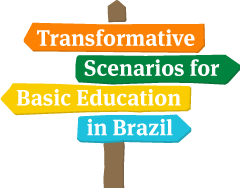Hummingbird
In the Hummingbird scenario, the education system is undergoing major reforms, based on successful experiences in the country and abroad, and inspired by societal, technological and environmental changes. The renewal of education stems from experiences developed by public schools, social organizations and movements, and other players. Stimulus for innovation through public policy opens up space for an education that is less traditional. The State ensures quality standards expressed in educational legislation and encourages schools in their experimentation and relationship with communities. There is a plurality of arrangements in the public-private relationship and non-profit models are given more attention. Private interest, from business to fundamentalist religious groups, requires strong regulation and permanent social control so that it does not dominate public schools. Participation and social control by different players within the school community are encouraged, but face challenges in influencing national policies. Diversity is valued, but the tensions involved in overcoming inequalities, discriminations and privileges are not often sufficiently addressed. A plurality of models coexists, such as networks and learning communities, cooperative territories, city-schools, and experiences in community education, strongly supported by technology. Despite being anchored to national education legislation, the multiplicity of experiences generates fear of fragmentation and difficulty in generating advances at scale. The inequalities between schools are accentuated. The concept of education is guided by principles such as equity, social justice and social and environmental sustainability. Education has the social function of shaping global and everyday agents of change, strengthening the intersectoral relationship between schools and the communities around them, and action in networks.
The Hummingbird is the symbol of this scenario. It has an intense beauty that transcends immediate rational explanation. It is one of the main pollination agents for a number of plant species and flies low to pollinate ground creeper flowers. The hummingbird is territorial and vocalizes the whole time, from dawn to dusk.

